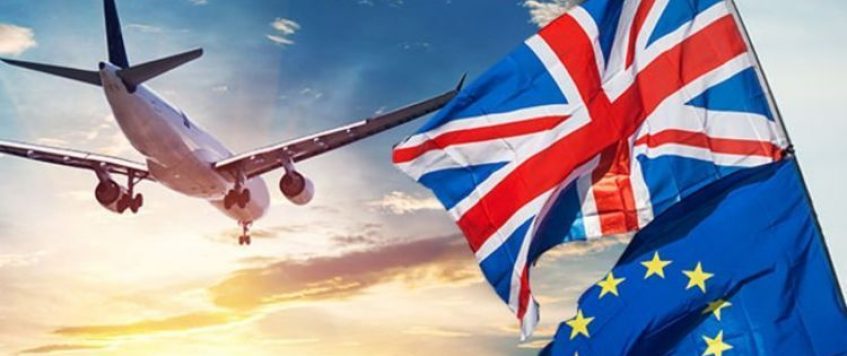-
21
Mar
Brexit Impact on Commercial and General / Private Aviation
As of March 14, the European Parliament has adopted the two legislative acts that will arrange market access for UK airlines and regulate the validity and/or recognition of the EASA certificates and licenses held by UK organizations in case of a no-deal Brexit scenario.
UK aviation minister Liz Sugg promptly issued a statement, stressing that the measures adopted by the EU “will ensure that flights can continue in any scenario, deal or no deal. That is good news, not only for the industry but most importantly it reaffirms the fact that passengers can book flights with confidence, as normal.”
The adopted legislative act gives UK airlines the right to overfly the EU and to operate third- and fourth-freedom flights between any point in the UK and any point in the EU27. The act doesn’t include any restriction on capacity or gauge, but UK airlines may not operate intra-EU flights.
UK airlines that currently provide scheduled air services on routes subject to public service obligations in the EU27 may continue to operate them for a maximum of seven months.
All UK cargo carriers get fifth-freedom rights beyond the EU, but only for a five-month period, and their capacity is capped at this year’s capacity level.
The legislation also allows for code sharing between UK and EU27 airlines, UK airlines may also provide wet-leasing operations.
On the other hand, the Civil Aviation Authority of the United Kingdom had also published guidelines If no deal for leaving the EU is agreed between the EU and the UK.
Airline Operating License and Air Operator’s Certificates (AOC) holders operating in and out of the UK would need to take action to ensure they can continue to operate aircraft as they currently do.
The CAA does not anticipate any additional action required for UK airlines operating in and out of the UK with a UK CAA-issued AOC.
As of the withdrawal date, an Air Operator Certificate (AOC) issued to airlines by the UK CAA would remain valid for air services from the UK. UK issued AOCs may continue to display EASA references beyond the EU exit date.
Once the UK has left the EU, airlines with UK Air Operators Certificates (AOC) would be considered ‘third country’ operators (TCOs).
TCOs require a safety authorization from EASA to operate within the European Common Aviation Area.
EASA is currently accepting TCO applications from UK AOC holders the process is streamlined. Details on that process and a link to the application form are available here: https://www.easa.europa.eu/brexit
The ownership and control requirements of UK airlines are affected. In order for an air carrier to obtain and keep an EU 27 operating license and benefit from the intra-EU air traffic rights. It must comply at all times with the conditions under Article 4 of Regulation (EC) No 1008/2008 on air services.
The conditions include the need to be majority owned and effectively controlled by the EU Member States and/or nationals of EU Member States. If these conditions are no longer fulfilled because of the UK leaving EU, the Operating License at issue would no longer be valid.
As regards to ownership and control, the new rules will give airlines holding an operating license issued by an EU member state but not meeting EU ownership and control requirements six months to fully meet all those requirements.
EU law requires EU interests to majority own—50 percent plus one share—and effectively control its airlines. Air carriers will have two weeks from the entry into force of the regulation to submit a precise and complete plan presenting the measures intended to achieve full compliance with the ownership and control requirements.
The way the legal and regulatory framework for ownership and control is being transposed into UK law means that the requirement to be majority-owned and effectively controlled by EU nationals would change since that definition would no longer apply to UK nationals. Going forward nationality restrictions would no longer be part of the Operating License but would be governed through a Route License.
All previously issued Operating and Route Licenses would remain valid, including circumstances where an existing license holder is currently majority owned or effectively controlled by qualifying EEA, as opposed to the UK, nationals under the current regulations.
Carriers that currently do not have a Route License would need to apply for one to the CAA.
The CAA published a Q&A section on their information website here: https://info.caa.co.uk/eu-exit/
